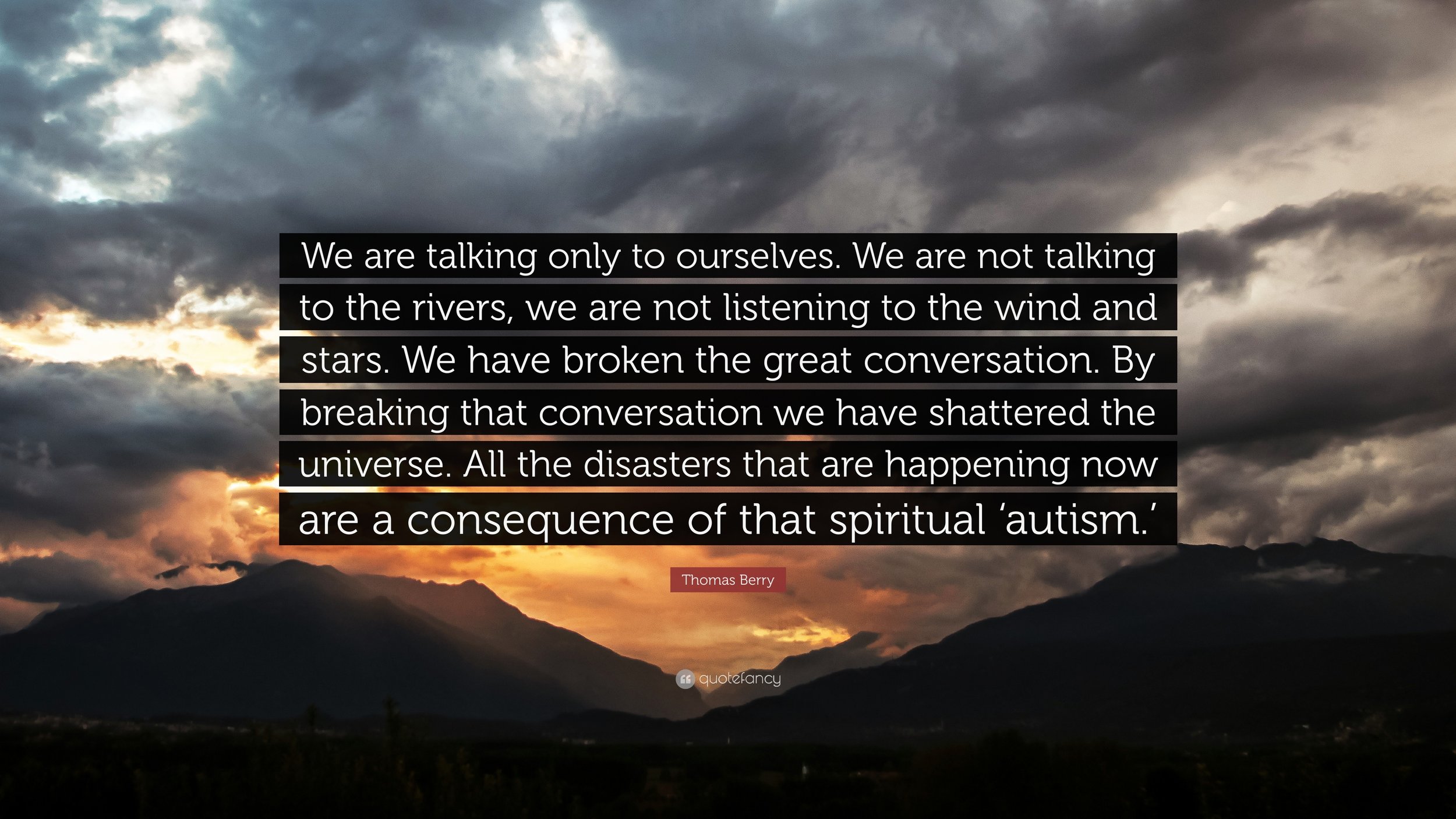BECOMING AN ELDER?
We think of the story of Exodus as the core of the holiday of Pesach. Liberation from internal and external Pharoahs and the promise of a promised Land is the core message. Only that’s not been my experience this year, 5784.
Bill Plotkin argues pretty vehemently in Nature and the Human Soul that a core marker of becoming an elder is an even greater turn towards the more than human world and a disengagement from the human concerns of the tribe. He defines the center of gravity for early elderhood as caring for the soul of the more than humans. I’m rereading Robin Kimmerer’s wonderful book Braiding Sweetgrass and she quotes another older Native American woman, Paula Gunn Allen, that after raising a family, there becomes a responsibility to mother the earth because there is a sphere of responsibility beyond the human sphere.
From the time I was a pre teen the story of liberation and a return from exile was compelling to me; I felt I lived in Exile as a Jew in American Suburbia and I desperately wanted to go home, even if I wasn’t clear what home was. I wrote for a Seder we did at a Hebrew High School that we needed liberation both from External Pharoahs and out internal pharaohs and internal oppression. And I remember the Hebrew School principal was mad at me, because he only wanted to talk about external oppressors.
I have always wanted a home. A place of good land where I was settled, a place where I felt I belonged, a place where I was no longer in exile. I worried that exile was an existential state, the price of being human—that certainly was a through line in the European existentialists with whom I felt very connected and in my ancestral experience as a Jew. The story of the Exodus spoke to me precisely because it was a myth of homecoming.
I still long for a home. I still long to be settled on a piece of land. If I could live my life over, I’d have found some rural progressive Jewish place to settle in my 20’s and I’d be on the land 40 years later, recalling good years and bad years for crops, looking over fields with whom I have partnered and who have benefitted from my stewardship. I would be content with the ground under my feet. I’m not.
So why does the Passover story no longer speak to me so much? I find myself thinking about the symbols of the seder plate—the karpas because this is a spring holiday, the egg as a symbol of the wholeness of the year, the haroset as a stand in for the earth which it resembles, the matzah as a symbol of the dryness our ancestors needed for the grain to ripen and a statement of right alignment with the ecosystem in which they dwelt. I find myself just tired of our human centric world and my too human centric life. I long, more than ever, for a deeper connection to the more than human world and I long to care for it even more than I did when I was younger and was privileged to have a farm and land to actually care for. The difference is that at that time I also craved to create a human family, and now I find that dropping away.
I think I am shifting. Now, how do I embody this new stage in my life? That’s a core question.
